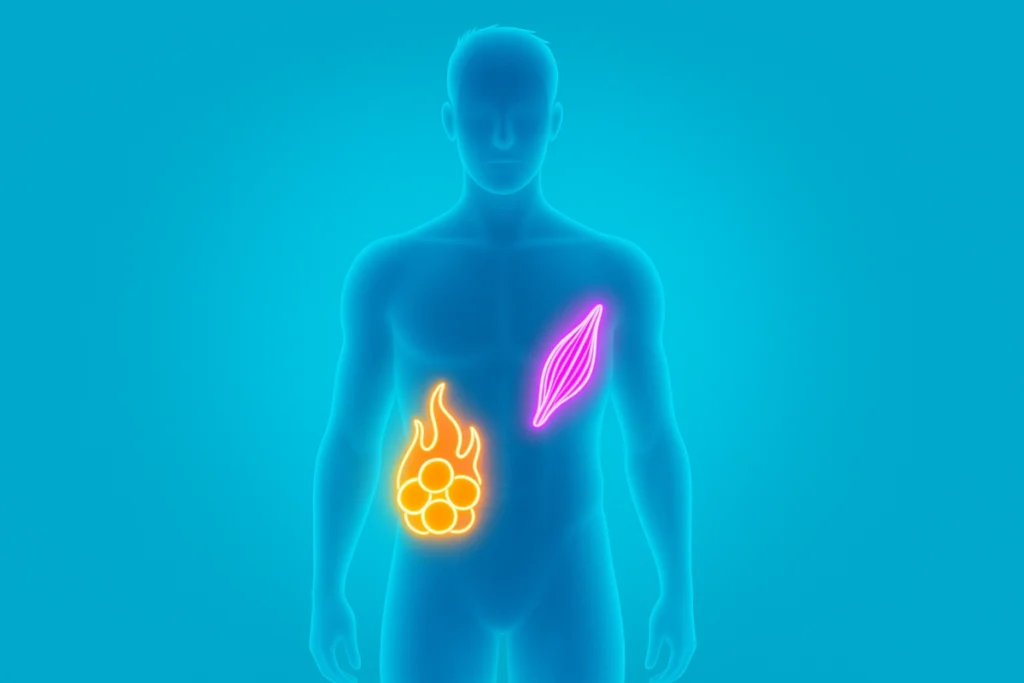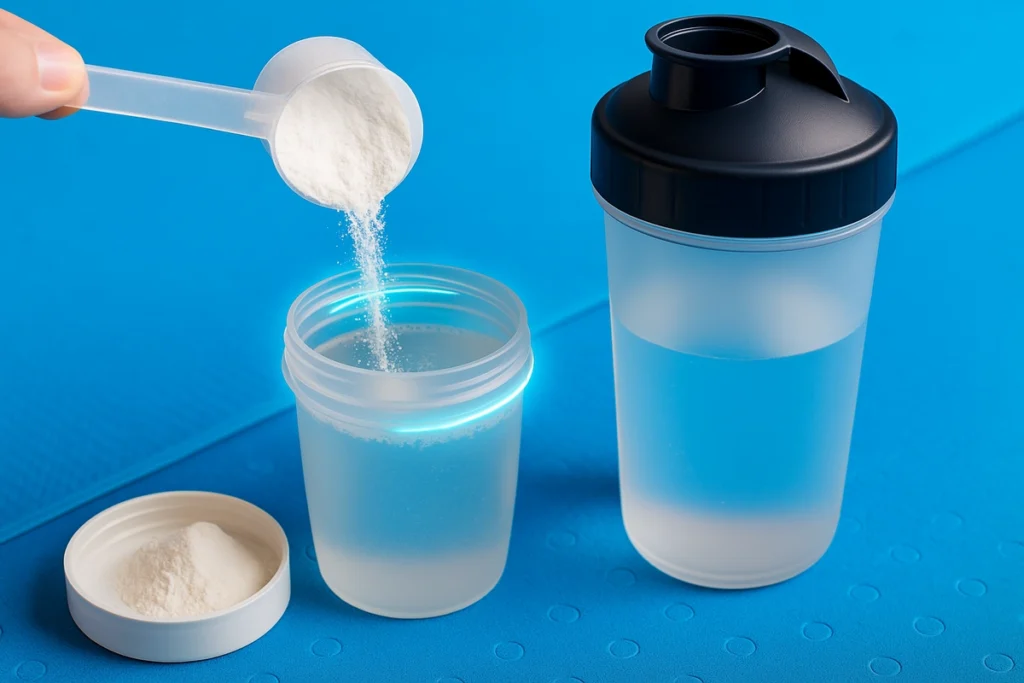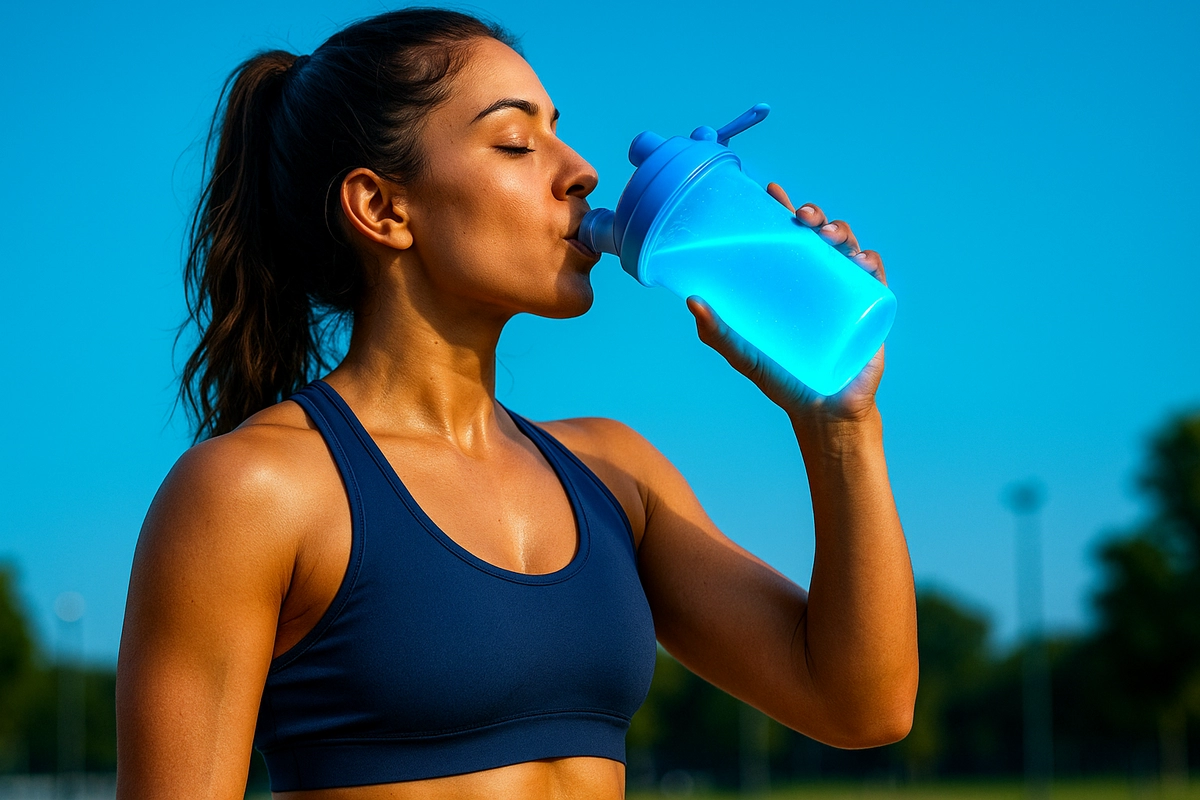Yes — BCAAs can be effective for muscle preservation during intermittent fasting, especially if you’re training hard while fasted.
But they’re not necessary for everyone — it really depends on your goals.
From my own experience, sipping BCAAs during fasted workouts helped me maintain strength and recover faster.
When you’re pushing through heavy training sessions without food, BCAAs give your muscles the essential amino acids they need to stay protected — without loading you up with calories.
Table of contents
What Happens to Your Body During Intermittent Fasting?

When you’re fasting, your insulin levels drop and your body starts burning fat for energy. This metabolic shift is great for fat loss.
However, without nutrient support, especially during intense training, your body can start breaking down muscle tissue for fuel.
This becomes a bigger issue when you train hard during your fasting window.
Muscle loss isn’t extreme with casual fasting, but when you’re lifting heavy or doing HIIT, it’s smart to have a strategy.
If you’re curious about how BCAAs compare with other options, check out BCAA vs Whey for Muscle Building.
How BCAAs Can Support Your Fasting Goals

BCAAs, particularly leucine, stimulate muscle protein synthesis.
In simple terms, they tell your muscles, “Hey, stay strong even though we’re not eating right now!”
The benefit is that BCAAs provide this support without adding significant calories.
However:
- BCAAs may cause a slight insulin spike.
- Strictly speaking, this would “break” a pure fast.
- Practically, for body composition goals, it’s not a deal-breaker.
Want to go deeper into smart supplement strategies? You might also like EAAs vs BCAAs for Workouts.
In my coaching practice, I use BCAAs as a targeted tool — not a blanket recommendation for everyone.
Should You Take BCAAs While Fasting?

Here’s a simple breakdown:
- Take BCAAs if: You’re lean, lifting heavy, training fasted, and aiming to protect every ounce of muscle.
- Skip BCAAs if: You’re mainly doing fasting for weight loss, health benefits, or light workouts.
A real-world story:
I worked with Lucas, a 32-year-old amateur bodybuilder prepping for a photoshoot. We added BCAAs during his fasted training, and it helped him keep his muscle density even at low body fat levels.
Another example is Nina, a 29-year-old prepping for her first fitness competition.
She told me she felt noticeably stronger and recovered faster during fasted cardio sessions when using BCAAs compared to earlier attempts without them.
For more insights on muscle recovery during fasting, read BCAAs for Muscle Soreness.
My Coaching Experience and Real Opinion

From my personal experience and years of coaching, I can confidently say:
BCAAs are helpful, but they’re not mandatory for everyone.
If you’re training seriously and care about muscle preservation, BCAAs can make a real difference.
But if you’re fasting casually or just focusing on weight loss, you’re better off saving your money.
When clients ask me:
Coach, should I take BCAAs while fasting?
I usually answer:
“If you’re pushing hard and want to protect your muscle, BCAAs can help.
If you’re just casually fasting, skip them and stay consistent with your routine.”
Timing matters too. Learn more in my detailed guide on Best Time to Take BCAAs.
Final Thoughts

👉 Bottom line: BCAAs are a useful tool when used smartly — not a necessity for everyone.
If your goal is serious muscle retention during intense training while fasting, BCAAs make sense.
If you’re more focused on weight loss, hydration and electrolytes will usually be enough.
For even broader recovery strategies, you can also explore BCAA vs Glutamine for Muscle Recovery and Benefits of Taking BCAAs on Rest Days.
Stay focused, stay consistent, and always align your supplements with your real fitness goals.
FAQ: BCAAs During Intermittent Fasting
Technically, yes.
BCAAs can cause a slight insulin response, which technically interrupts a strict fast.
However, for most people focused on fat loss or muscle preservation, this minor spike doesn’t hurt results. It’s really about your goal: strict fasting for autophagy or practical fasting for body composition.
It depends on your goal.
If you’re just aiming for basic fat loss with low-intensity cardio, you don’t need BCAAs.
If you’re doing intense fasted cardio sessions and want to protect muscle mass — especially if you’re already lean — BCAAs can help.
A standard dose is around 5–10 grams of BCAAs during your workout or cardio session.
Make sure the formula has a good amount of leucine (around 2–3 grams per serving) for optimal muscle support.
It’s best to use BCAAs only around your workouts — not sipping them all day.
If you constantly sip BCAAs, you might blunt some of the fasting benefits and stay in a semi-fed state.
EAAs (essential amino acids) offer a broader range of muscle support compared to BCAAs.
If you want to explore the difference, check out my full comparison: EAAs vs BCAAs for Workout Recovery.



Leave a Reply